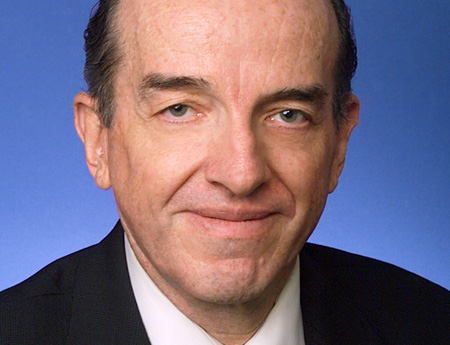Wheeler Looks to Make Ownership His Own

The smarter way to stay on top of broadcasting and cable industry. Sign up below
You are now subscribed
Your newsletter sign-up was successful
RELATED: Wheeler’s Carrot-And-Stick Approach
FCC Chairman Tom Wheeler has signaled he will put his own stamp on the commission’s media ownership rules review.
And now, for anyone seeking a meaning in more plain English: The FCC will almost certainly not be taking any final action on media ownership rules reviews by the end of this calendar year, and likely mid-2014 at the earliest, after years of delays, both legal and self-inflicted.
Wheeler has officially taken out of circulation the year-old proposal by previous chairman Julius Genachowski to loosen the newspaper/ broadcast cross-ownership ban and lift the ban on newspaper-radio and radio-TV cross-ownership.
That is likely in part a procedural move signaling that the review—which was actually due in 2010—will be rolled into the 2014 review and released sometime next year. It also allows Wheeler to put his stamp on the rules review in light of a changing marketplace. It is a quadrennial review mandated by Congress—it had been a biennial review, but that was changed to give the FCC more time. But thanks to court challenges and other intervening issues—such as the impact of the rules on diversity—even four years was not enough time.
The move was described as one made by both the chairman and FCC commissioners to give media ownership a fresh look, but with the idea that the commission will move expeditiously on a new item.
It also presumably means Wheeler will filter the review through his own assessment of the record, and calls by some in Congress to hold off until the FCC collects more information on the impact of shared service and marketing agreements and whether the FCC should count them toward ownership limits.
The smarter way to stay on top of broadcasting and cable industry. Sign up below
Last week, the Justice Department told Gannett it would have to completely divest a St. Louis station it is acquiring from Belo, rather than spin it off and provide some services via a sharing arrangement.
Former FCC chairman Michael Copps, who was around for much of the legal backand- forth over the ownership rules, including opposing any effort to loosen them, regarded Wheeler’s move as a good sign for anti-consolidation forces.
“I am tremendously encouraged that chairman Wheeler has pulled this item. It was an ugly dinosaur still stalking the commission’s hallways long after it should have been extinct,” says Copps, who is now heading up a media and democracy initiative at Common Cause. “Maybe, just maybe, the new FCC will go on from here to become a true protector of the people’s interest on the people’s airwaves. If there is a will, I know there is a way, and the time is now.”
Contributing editor John Eggerton has been an editor and/or writer on media regulation, legislation and policy for over four decades, including covering the FCC, FTC, Congress, the major media trade associations, and the federal courts. In addition to Multichannel News and Broadcasting + Cable, his work has appeared in Radio World, TV Technology, TV Fax, This Week in Consumer Electronics, Variety and the Encyclopedia Britannica.

